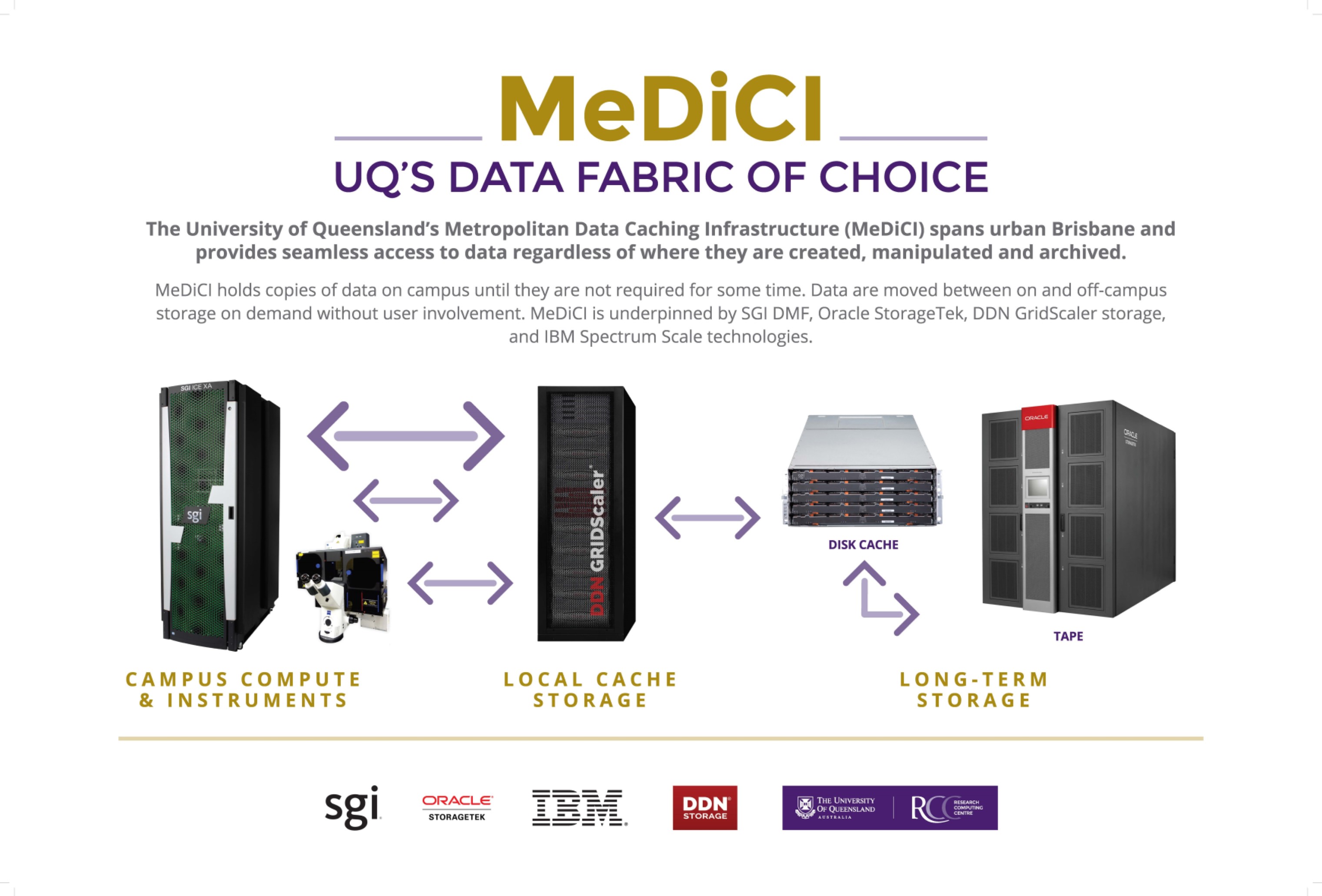
Good progress is being made on the testing phase of UQ’s new high-performance data storage fabric and RCC expects to call for early adopters in the next month or two.
Six nodes of the Metropolitan Data Caching Infrastructure (MeDiCI) are currently being tested, one each at RCC, UQ’s Information Technology Services, the Queensland Brain Institute, the Institute for Molecular Bioscience, and two at the Polaris Data Centre in Springfield. These locations were chosen to serve some of UQ’s heaviest data generators and to link them to the processing and storage facilities at Polaris.
The MeDiCI nodes are designed to help accelerate data-intensive science by putting data where they need to be, when they need to be there. With the nodes, data can be held close to the researcher, their instruments and technology. Data are automatically transferred for storage or sharing purposes without any manual involvement on the part of the researcher or support staff. MeDiCI also safeguards data by automatically creating copies stored offsite.
MeDiCI project member Jake Carroll, QBI’s Senior IT Manager—Research, said the data storage fabric marries data movement with a powerful, industry standard parallel file-system that is used by some of the world’s largest supercomputing facilities.
The MeDiCI nodes are “sewn together” by a new 40 Gbit high-speed dedicated “research backbone” campus network, facilitated by UQ’s networks team. Mr Carroll and Irek Porebski of QBI; Leslie Elliot, Alan Ewer and Marc Blum of ITS; Nelson Marques of IMB; and RCC’s Michael Mallon designed the nodes.
“It has been one of the most collaborative things we’ve done at UQ for high technology stuff,” said Mr Carroll.
As well as on-campus usage, the project team has also trialed using MeDiCI for international data transfer, with UQ and the University of California, San Diego as the test case. The results of this were successful and were written about in RCC News last December in an article titled ‘UQ gets closer to global data sharing’.



